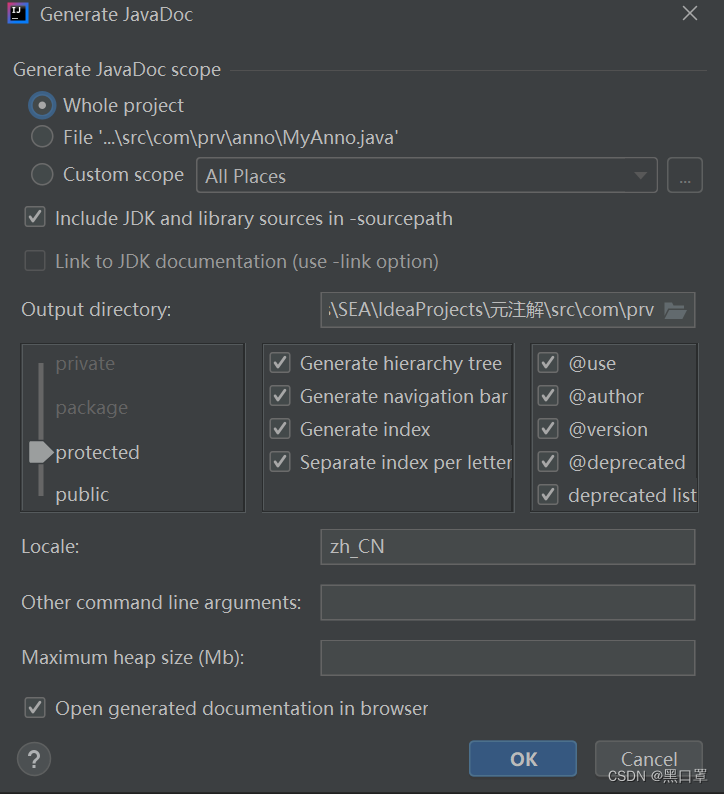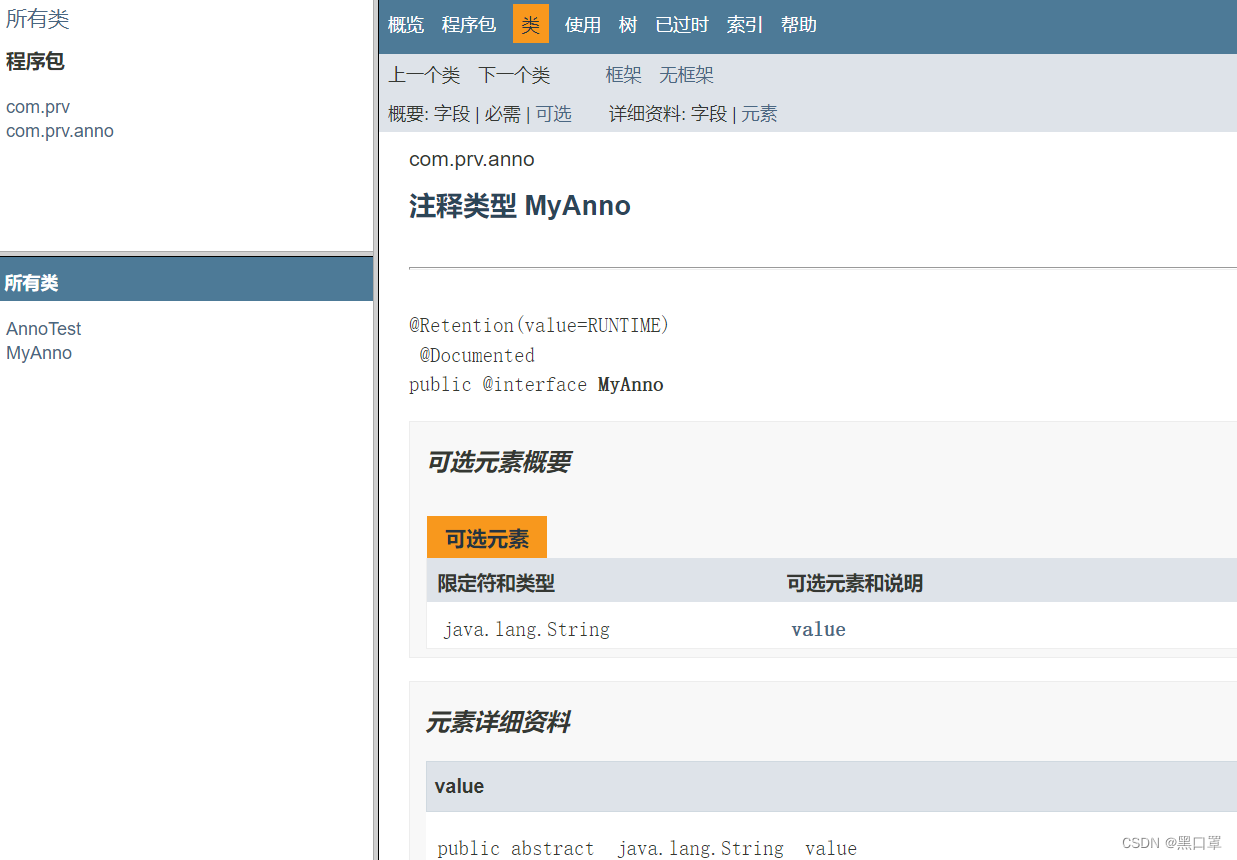目录
@Retention @Target @Documented @Inherited @Repeatable
元注解的含义
用来对注解的位置、作用范围、继承、文档抽取进行描述
@Retention
import java.lang.annotation.Retention;
import java.lang.annotation.RetentionPolicy;
// @Retention(RetentionPolicy.SOURCE) // MyAnno注解在源代码中有效
// @Retention(RetentionPolicy.CLASS) // MyAnno注解在类文件中有效
@Retention(RetentionPolicy.RUNTIME) // MyAnno注解在运行时有效
public @interface MyAnno {
public String value() default "";
}@MyAnno("我是一个注解")
public class AnnoTest {
public static void main(String[] args) {
AnnoTest at= new AnnoTest();
MyAnno annotate = at.getClass().getAnnotation(MyAnno.class);
System.out.println(annotate.value());
}
}
输出:我是一个注解@Target
表示该注解可以给哪些元素使用

扫描二维码关注公众号,回复:
16729392 查看本文章


ElementType.ANNOTATION_TYPE: 注解
ElementType.CONSTRUCTOR: 构造方法
ElementType.FIELD: 字段、枚举常量
ElementType.LOCAL_VARIABLE: 局部变量
ElementType.METHOD: 方法
ElementType.PACKAGE: 包
ElementType.PARAMETER: 形参
ElementType.TYPE: 类、接口、注解、枚举
ElementType.TYPE_PARAMETER: 类型参数
ElementType.TYPE_USE: 类型使用
@Target({ElementType.METHOD,ElementType.FIELD})
public @interface MyAnno {
public String value() default "";
}@Documented
注解信息可以被 javadoc 工具提取到API文档中
@Documented
public @interface MyAnno {
public String value() default "";
}IDE路径:Tools -- Generate JavaDoc


@Inherited
修饰的注解具有继承性
import java.lang.annotation.ElementType;
import java.lang.annotation.Inherited;
import java.lang.annotation.Retention;
import java.lang.annotation.RetentionPolicy;
import java.lang.annotation.Target;
@Inherited
@Target(ElementType.TYPE)
@Retention(RetentionPolicy.RUNTIME)
public @interface MyAnnotation {
public String value() default "";
}@MyAnnotation("父亲")
public class Father {}public class Child extends Father{
public static void main(String[] args) {
Class<Child> child=Child.class;
MyAnnotation anno = child.getAnnotation(MyAnnotation.class);
System.out.println(anno.value());
}
}
输出:父亲@Repeatable
声明的注解可以重复注解在对应的元素上,可以通过另一个注解的值来包含这个可重复的注解。
import java.lang.annotation.*;
@Retention(RetentionPolicy.RUNTIME) //
@Target(ElementType.TYPE)
public @interface MyAnnos {
MyAnno[] value() ;
}@Retention(RetentionPolicy.RUNTIME)
@Target(ElementType.TYPE)
@Repeatable(MyAnnos.class)
public @interface MyAnno {
String value() default "";
}import com.prv.anno.MyAnno;
@MyAnno("anno")
@MyAnno("lala")
public class AnnoTest {
public static void main(String[] args) {
MyAnno[] fileTypes = new AnnoTest().getClass().getAnnotationsByType(MyAnno.class);
for (MyAnno myAnno : fileTypes) {
System.out.println(myAnno.value());
}
}
}
输出:
anno
lala